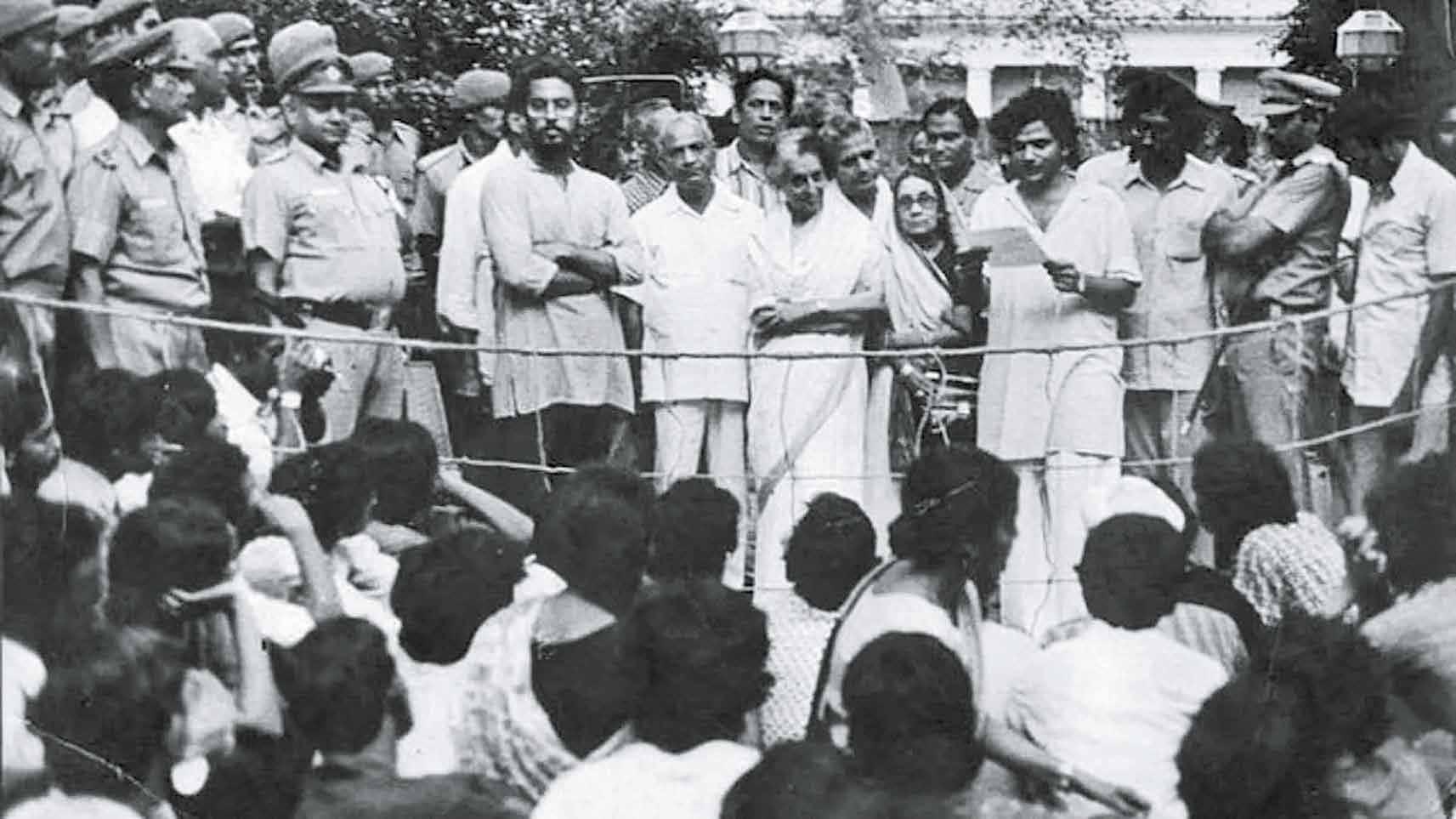
THE death of Sitaram Yechury threw up a black-andwhite photo of him in 1977, reading an indictment of Indira Gandhi in her presence. In that photo, Yechury, the president of the Jawaharlal Nehru University (JNU) Students' Union at the time, is asking that she resign as chancellor of the university because she had lost the post-Emergency general election, and she held that honorary office by virtue of being the prime minister of India. Yechury had been jailed during the Emergency and this blackand-white picture of a tousled student leader in an oversized kurta-pyjama, publicly holding a prime minister to account as she looks on, smiling, seems an image from another country...the safely distant past.
I was 20 when that photo was taken, five years younger than Yechury and much too prudent to have risked imprisonment through my second and third years as an undergraduate in Delhi University, but I remember the sense of release when All India Radio announced in an evening broadcast that the Congress (I) had lost the election, and Gandhi, her seat. I was living in Delhi University at the time, with my aunt, who was a lecturer there. When I relayed the news, she was still for a moment. Hai bechari (poor thing), she said, and went back to combing her hair.
For her and my parents' generation, Indira was still Panditji's daughter. Even as they were oppressed by her authoritarianism, she remained a living reminder of the early promise of the republic. I was nine years old when she became prime minister. My generation was defined by her time at the top, from 1966 when she succeeded Lal Bahadur Shastri when he died unexpectedly in Tashkent, to 1984 when she was assassinated. My cohort's understanding of the purpose of the Indian state and India's place in the world, our idea of India was either constituted by her government's rhetoric or shaped by our opposition to it.
This story is from the October 01, 2024 edition of Outlook.
Start your 7-day Magzter GOLD free trial to access thousands of curated premium stories, and 9,000+ magazines and newspapers.
Already a subscriber ? Sign In
This story is from the October 01, 2024 edition of Outlook.
Start your 7-day Magzter GOLD free trial to access thousands of curated premium stories, and 9,000+ magazines and newspapers.
Already a subscriber? Sign In

Soft Ruins
'Soft Ruins' is a chapter within the long-term ongoing project \"When Spring Never Comes\", an expansive exploration of memory, identity and displacement in the aftermath of exile within contemporary global politics. It reflects on how the journey as an asylum seeker in Europe mirrors the instability and threats of life under dictatorship, amidst rising right-wing movements and shifting power dynamics, where both certainty and identity are redefined

Building Beyond Homes: Provident Housing's Transformative Approach
Provident Housing leads in crafting thoughtfully designed homes that cater to modern homebuyers' evolving needs. With a focus on timely delivery, sustainability, and innovative, customer-centric solutions, the company sets new benchmarks. In this exclusive interview, Mallanna Sasalu, CEO of Provident Housing, shares insights into the company's strategies, upcoming projects, and vision for India's housing future.

Syria Speaks
A Syrian graffiti artist-activist's tale of living through bombings, gunshots and displacement

The Burdened
Yemen, once a beautiful land identified with the Queen of Sheba, is now one of the worst ongoing humanitarian disasters of modern times

Sculpting In Time
Documentaries such as Intercepted and Songs of Slow Burning Earth grapple with the Russian occupation beyond displays of desolation

The Story Won't Die
Is Israel's triumphalism over its land grab in Syria realistic? The hard reality is-Israel now has Al-Qaeda as a next-door neighbour

Against the Loveless World
In times of war, love exists as a profound act of defiance

Soul of My Soul
What does it mean to continue to create art during a genocide?

in Dancing the Glory of Monsters
By humanising the stories of those affected by war, poverty and displacement, Buuma hopes to foster empathy and inspire action

All the President's Men
Co-author of All The President's Men and one of the two Washington Post journalists (the other was Carl Berntstein) who broke the Watergate scandal that brought down the President Richard Nixon administration in the United States in 1974, Bob Woodward's recent book War was on top of The New York Times Bestseller list, even above John Grisham.